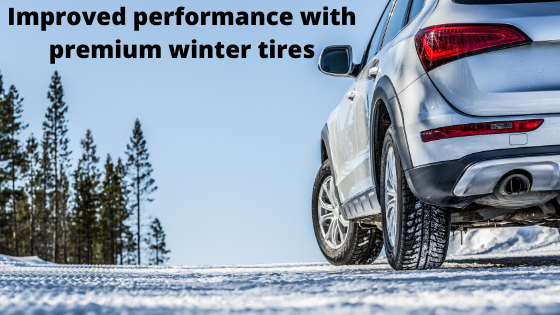When you have winter tires and you still want to make sure that you can drive safely then you will need to have tires that are approved for winter use. All-season tires are not made for winter conditions, so you can’t really expect them to perform in those conditions and trust me they won’t. All-season tires get hard when the temperature drops below 45 degrees Fahrenheit and they don’t have the appropriate tread pattern design to handle snow and ice. This is what they are not a good or safe choice for the winter.
All-weather tires will outperform all-season tires as they will not get hard at low temperatures and they are approved for winter use, so you can drive safely on snow and ice. All-season tires are not approved for winter use and should therefore not be used, and their use should be limited to the warm seasons, spring, summer and fall and then be changed to winter tires for the winter period or then you use all-weather tires for the whole year.
If you feel that the winters are not so bad that you might manage without winter tires and winter tires are not mandatory in the area where you live, then the all-weather tires might be the tires for you. Since the all-weather tires can be used all year round, you don’t have to worry about the weather forecast. You can drive just as safely during the all-season as the winter. This makes these tires perfect for those conditions that might not always warrant the change to winter tires, however if you do have winter conditions you do need to have winter approved tires to be safe.
So if live in an area that will probably get some winter weather during the year and you need the car to that extent that you can’t leave it be during the period when you have snow, then you will either have to change to winter tires or use all-weather tires. Both options are good, but the all-weather tires might be the most convenient option. If you have a high performance car and you want to make sure that you have the best performance during the summer and you don’t really want to use an all-weather tire all year round, then you can still use these for the winter season and use the all-season tires during the summer period.
This way you will get the best performance during the summer, while still having the winter protection during the winter period. This will give you the best all year-round protection against winter challenges and optimal performance during the summer. The key is that it is not safe to drive on snow or ice with all-season tires, so you will need to find tires that are safe to use during winter conditions. This means that they will need to be approved for winter use. This means that you will have to have either winter tires or all-weather tires.
For more information regarding all-weather tires that are approved for winter driving, visit: https://www.nokiantires.com/
